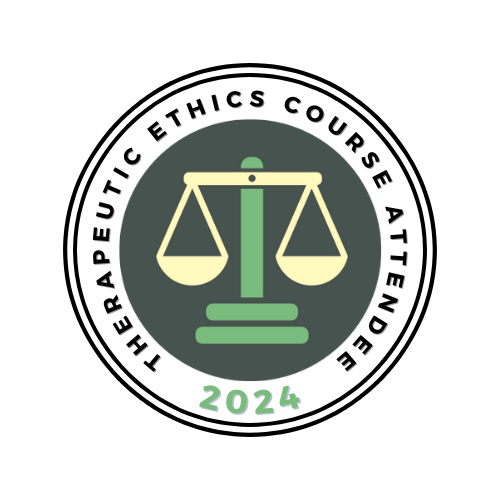Elisheva (Elie) Hoffman
Credentials
Finances
Licensed Abroad
- Modigliani 14
- Tel Aviv
- Email Me
-
 Business Hours
Business Hours
Elisheva (Elie) Hoffman
 Verified
Verified
Credentials
Clinical Psychologist
PhD
Finances
350-500 NIS
N/A
Free Consultation | Student Discount
ABOUT THE THERAPIST
I am a clinical psychologist, licensed in Israel and the USA. I earned my B.A. from Hebrew University, and my PhD from Long Island University. I was born in the USA, made Aliya with my family at the age of 7, grew up in Israel, served in the IDF, and am fully bi-cultural, with a strong connection to both identities. I trained and worked in NYC, including teaching academic courses in psychology and supervising trainees, working with diverse populations treating a wide range of issues in a variety of settings, including general hospitals and community clinics. My most recent position was as a staff psychologist at Columbia University's Counseling and Psychological Services, and I am currently affiliated with Tel Aviv University Psychological Services. My therapeutic approach is collaborative and relationally oriented, and integrates elements of other approaches, including Acceptance and Commitment Therapy (ACT), Cognitive-Behavioral Therapy (CBT), and Mindfulness. This may sound like a lot of confusing jargon, so I will not expand further here, but will happily do so during our initial meetings should we decide to work together.
QUALIFICATIONS
PhD
Long Island University
2007
Degree
PhDEducation
Long Island UniversityYear of Graduation
2007Years in Practice
16
Mumche Category
Clinical Psychologist
Mumche License Number
27-34219
LICENSED IN THE USA
ADDITIONAL CREDENTIALS
Ethics Course Cert - CE-credit.com - 2022
DISTANCE COUNSELING
Telephone Counseling, Online Therapy
PRIMARY SPECIALTIES
Anxiety / Panic
Depression
Family Issues
Life Transitions
Trauma / Post Traumatic Stress Disorder PTSD
ADDITIONAL SPECIALTIES
Abuse
Academic
Adjustments
Cancer / Terminal Illness
Gender Identity Concerns
Grief
Infertility
Mood Disorders
Self-Esteem
Sexual Abuse / Rape
Sexual Issues
Spiritual Concerns
CLIENT FOCUS
Population
Adults
Languages Spoken
Hebrew
English
TREATMENT APPROACH
Acceptance and Commitment Therapy (ACT)Acceptance and Commitment Therapy (ACT) is a form of psychotherapy that encourages individuals to accept their thoughts, feelings, and experiences without judgment and to use them as tools to help them to make changes in their lives that are consistent with their values. It is based on the idea that by changing the way we think about our inner experiences, we can reduce emotional distress and increase our sense of well-being.
Cognitive Behavioral Therapy (CBT)Cognitive Behavioral Therapy (CBT) is a type of psychotherapy that focuses on how one's thoughts, feelings and behaviors are connected and can be changed. It is based on the idea that how we think (cognition) and how we feel (emotion) can influence how we behave. CBT helps people identify and challenge distorted thinking and replace it with more balanced thinking, leading to improved mood and behavior. ‘Homework’, usually containing practical writing exercises, is often completed by the client between sessions to reinforce the therapy. Examples of tools that practitioners often use are journaling, challenging beliefs, and mindfulness.
Psychodynamic TherapyPsychodynamic therapy is a form of therapy that focuses on the unconscious mind and how it affects behavior. It works to help people understand and work through past experiences and feelings that may be causing difficulties in the present. This type of therapy encourages individuals to explore their emotions, relationships, and behaviors in order to gain insight into their current difficulties. It can help individuals better understand themselves and their motivations, and gain insight into how past events have impacted their current lives. People tend to develop defense mechanisms when faced with challenges in life. Defense mechanisms may keep painful feelings, memories, and experiences in the unconscious. A few common defense mechanisms include: denial, repression, and rationalization. Psychodynamic therapists encourage people to speak freely about their emotions, desires, and fears. Being open may help uncover vulnerable feelings that have been pushed out of conscious awareness. According to psychodynamic theory, behavior is influenced by unconscious thought. Once painful feelings are brought forth and processed, the defense mechanisms are no longer needed and a person in treatment can start changing unhelpful patterns when coping with life’s challenges.
Relational PsychotherapyRelational psychotherapy is a form of psychotherapy that focuses on a person’s relationships with others and the dynamics between them. It emphasizes the importance of the therapeutic relationship between the client and the therapist, and it explores the meaning and purpose of relationships in the client’s life. Relational psychotherapy seeks to understand how the client’s past relationships shape their current experiences and how the client interacts with others. The goal is to help the person develop healthier relationships and better communication skills so they can become more emotionally connected to others.
Mindfulness
SERVICES OFFERED
Individual Therapy

 Verified
Verified




